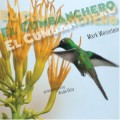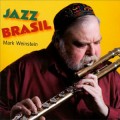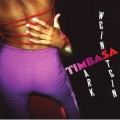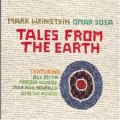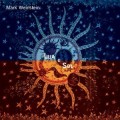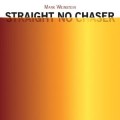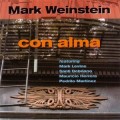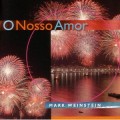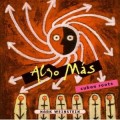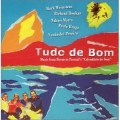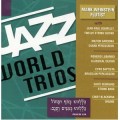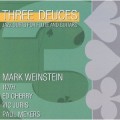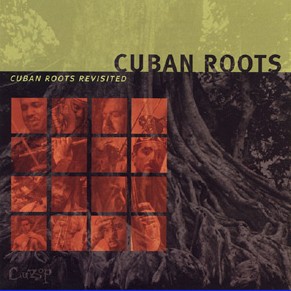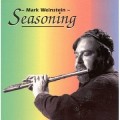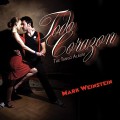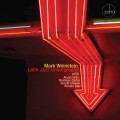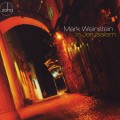
Reviews of Algo Mas
JAZZIZ Magazine ‘Critic’s Picks’ — “BEST OF THE YEAR”
Algo Mas is anything but the typical modern jazz CD. Though there is a spirit of open improvisation and the musical influences are varied and eclectic, those two features are about all Mark Weinstein’s latest release have in common with many of the other CD’s reviewed in these pages. That, however, is not to say that Algo Mas is lacking in originality or interesting ideas. Rather, there is so much to hear on this release that it will certainly take a few listens to get it all in. Weinstein calls his band Cuban Roots, and it is a most appropriate name. For its textural canvas, this recording chooses African influences in the most folkloric interpretations- the roots of Afro-Cuban music.
The CD consists largely of original arrangements of traditional Afro-Cuban folkloric themes. “Ellegua Abierto” begins with a solo guitar, gradually adding vocals, percussion and flute. The flute melodies are interwoven throughout the track. The musical image of two instrument co-existing and “bumping into” each other is one that is used to great effect throughout the CD. The idea is used again used on the next tune “Mis Consuelos,” this time the combination is flute and guitar. The traditional theme this piece is based on recurs throughout the tune, mostly as a background part to the soloing. “Aguas de Ochun” set in a busy 6/8 meter, featuring sparse vocal lines, which are answered by Weinstein’s flute, before building in intensity for a loud jabbing guitar solos. The most mainstream sounding tune has to be “Mamita Baila” with a singable pop-sounding melody.
Vocals and the flute are again “in each other’s faces” for the 6/8 tune “Vientos de Oya” which also features guitar and bass solos. “Jete Dlo” is a guitar/percussion duet. “Caminando con Agayu” again employs the call and answer idea, with flute and guitar trading answers to vocal calls. “Fantasia Malaga” is on of the most dense tunes, with its collective soloing and busy percussion. Weinstein takes one of his most interesting solos on “Salud Asojano” which begins with a cappella vocals. The title track, which closes the disc, is up-tempo and high intensity.
If you are looking for traditional jazz, this isn’t the CD. Ditto if you want the kind of Latin jazz made famous by masters like Tito Puente and Mongo Santamaria. If, however, you are interested in jazz at its most primal level- improvisation for creativities sake- then Algo Mas is for you. Weinstein is a fine player and leader and his band presents the unusual material in a consistent and informed manner. If this sounds remotely interesting to you, you’ll love the CD. For, while some may not care for the concept, there’s no doubt that its presentation is top-notch.
by David Miele — Jazz Improv
Mark Weinstein isn’t likely to be the first name on anyone’s list of Latin jazz legends. Still, his 1967 album Cuban Roots did much to reunite Latin jazz with the deep, unfiltered Afro-Cuban drum rhythms that gave rise to it two decades earlier. At the time, Weinstein was a trombonist and composer with an adventurous creative streak.
By the mid-’70s he’d forsaken the trombone for the flute, though his pursuits for the next 20 years or so were more academic than musical. Today he’s a university professor who, lucky for us, still finds time to make music. And what stunning, spine-tingling music it is. Algo Mas (Something More) features Weinstein on soprano, alto and bass flutes, joined by percussionist/vocalist Pedro Martinez, electric guitarist Jean-Paul Bourelly, acoustic bassist Santi Debriano and percussionists Nani Santiago, Gene Golden and Skip Burney for an hour of exhilarating, mesmerizing sounds that are part Latin jam, part praise session for the African deities who figure prominently in much Afro-Latin traditional music and part musical conversation in which the players speak the same language with flawless fluency.
Weinstein Digs Ever Deeper. The guitar has never been a staple instrument in Latin jazz, but it’s the first sound heard here. Bourelly begins “Ellegua Abierto” (an ode to the Yoruba god of the crossroads) with wispy, almost offhanded soloing. Out of nowhere, Martinez breaks in with a vocal chant and it’s pure magic from there to the end of the disc.
“The percussionists create a wall of intricate, shifting beats, a perfect atmosphere in which the guitar, bass, flutes and vocals feed into and off of one another, sometimes all together but frequently in solo sections that allow for some amazingly symbiotic excursions of sound. It’s difficult to describe the sort of euphoria this album brings about. It soothes and caresses but cooks as well. And in a way it takes Latin jazz to where it’s always been and to where it’s never been, combining timeless rhythms and extemporaneous spirit like nothing else. Absolutely indispensable for Latin jazz aficionados, very highly recommended for all others.
by Torr — World Music Central
Thirty-eight years ago a trombonist with the unlikely name (for a Latin jazz musician) of Mark Weinstein released one of the most innovative albums in Latin Jazz ever heard then, Cuban Roots. If you’re fortunate enough to snag a copy, you may quickly discover that is sounds as fresh now as it did then.
Now picture Weinstein in 2005, older and musically even more sophisticated, playing flute rather than trombone. And rather than playing in a typical brass-heavy Latin jazz band, he surrounds himself with a highly eccentric jazz-rock guitarist, a vocalist who sweetly sings Santeria chants, a Latin jazz acoustic bass player, and a battery of Cuban drummers. This adds up to one of the most original blends of jazz and Cuban music heard in recent years, quirky, lively and as singular as Weinstein’s 1967 masterpiece.
The 10 tunes comprising Algo Mas include a variety of improvisations grounded in rumba and Santeria songs. Two instrumental voices are dominant throughout. Weinstein forcefully and lyrically plays soprano, alto and bass flutes, some times overdubbing all three to create a massive, intense vocalized sound. Electric and electrifying guitarist Jean Paul Bourelly skitters about the frets with lots of Afro-pop, jazz and avant-rock colors, and with more that a touch of the runs you might identify with Jimi Hendrix. This adds an odd but appealing edginess to the music, as if you expect the band to veer into an Afro-Cuban version of “Foxy Lady” at any second. Just to make this musical gumbo a little more odd, there’s vocalist Pedro Martinez, who sings Santeria chants with great fervor and traditional styling, seemingly oblivious to Bourelly’s noisy neo-psychedelic runs and Weinstein’ post-bop flute flights.
This is intellectually deep and emotionally satisfying jazz improvisation on Cuban themes that demands and rewards close listening, a recording for those who want to adventure beyond much of the formulaic arrangements that pass as ‘Latin jazz’ today. And you can dance to it, although you’ll have to create some strikingly new moves to keep up with this music’s daring spirit.
by Norman Weinstein — The Beat
Retro Latin Jazz with the blessings of the deities of Mother Africa barley begins to describe this latest outing from veteran multi-instrumentalist Mark Weinstein. Like a lost chapter from the historical sixties concert in Woodstock, New York, Weinstein and the cast of his band Cuban Roots unveil a hypnotic session of rhythms and seductive melodies fresh to our senses yet reminiscent of a perhaps forgotten street corner rumba from a previous life. Weinstein, who spent most of the sixties blowing his trombone with living legends such as Herbie Mann and Eddie Palmieri, among many others, started playing the flute in the mid-seventies after having retired from playing music in the early 1970’s. In 1997, he returned to the stages of the world, this time holding a flute in each hand and continuing his 35-year music career, which still contains uncharted sonic domains within his musical fusion. Playing the soprano, alto and bass flutes, Weinstein paints soundscapes that come to life via the percussive power and dexterity of percussionists Pedrito Martinez, Nani Santiago, Gene Golden and Skip “Brinquito” Burney. The other voices in the band are those of Martinez interpreting all the Yoruba chants and choruses, and the screaming guitar of Jean-Paul Bourelly (a collaborator of Elvin Jones). His unique sound reaches from Hendrix to Wes Montgomery to free jazz and to the John McLaughlin Mahavishn days. Anchoring the rhythm section is bassist Santi DeBriano with an incredible gusto. Together, these cats make truly cosmic traveling music with a natural down-to-earth feeling. Standouts include Mis Consuelos, Mamita Baila, and title track Algo Mas.
by Latin Beat Magazine
This unique recording has an uplifting spirit that blends traditonal Afro-Cuban clave rhythms and vocals with elements of jazz, rock, contemporary dance, and world music. Not to sound overly descriptive, but this music is thick with Old and New World persona; to those familiar with New York-based flautist Mark Weinstein, this should come as no surprise. His impressive resume is dotted with names like Thad Jones, Eddie Palmieri, and Tito Puente, as well as many recent recordings and the landmark 1967 Cuban Roots. After these many years Weinstein is still tapping into the flow of creativity, as vibrantly as ever on Algo Mas (Something More).
The music’s richness and diversity is elevated by Weinsten and the perfect ensemble of musicians. The leader’s voice is fertile with jazz roots as he commands and delivers smooth notes using a variety of harmonics from his set of soprano, alto, and bass flutes. Given life by the pulse of a dynamic multi-rhythm section including bassist Santi Debriano and three percussionists (Gene Golden, Nani Santiago, and ”Bringuito” Burney), the music beckons the listener to get up and dance.
The flute and percussion alone could carry the recording but two additional factors that increase the depth are vocalist/master percussionist Pedro ”Pedrito” Martinez and guitarist Jean-Paul Bourelly. Martinez (who won First Place in the Thelonious Monk Institute’s Afro/Latin Jazz Hand Drum competition) also colors the music with authentic and soulful vocals. Noted guitarist Bourelly brings a variety textures from Hendrixian rock electricity to native riffs and jazz improvisations on various selections.
And this is not your typical Latin or Cuban jazz recording, as it borrows heavily from traditional street and spiritual influences, beginning with ”Ellegua Abierto (Open Ellegua),” which is layered with mellow guitar, voice chants, percussion, and flute solos. The music exudes a feeling of joy and optimism on ”Aguas de Ochun (Ochun’s Waters)” with a tempo ported by soothing flute, percussion, and engaging vocals.
There is so much to enjoy on this recording. Noteworthy pieces include the spellbinding dance of ”Vientos de Oya (Winds of Oya),” the percussion/guitar outpouring of ”Jete Dlo (First Water),” the calming ”Salud Asojano (Health Asojano),” and the closing title song, which highlights free solos from Weinstein and Bourelly, making Algo Mas one of this year’s most memorable releases.”
by Mark F. Turner — AllAboutJazz.com
Might I say right away that this CD project by reedman Mark Weinstein is an interlude in some of the most exquisite latin music I’ve heard in quite awhile. Mark’s very “personal” playing style disguises his profound musical craftsmanship, as he renders his solos with incisive inventive interpretations. Weinstein’s passionate improvisations are crisply articulated, often harmonically rich…Yet, subtle in their power. This is a pleasing contrast to some of the more “fusion” oriented projects that mask their soloists with more of a rock based character. That is not jazz. This project is jazz.
by George W. Carroll — EJazzNews.com
